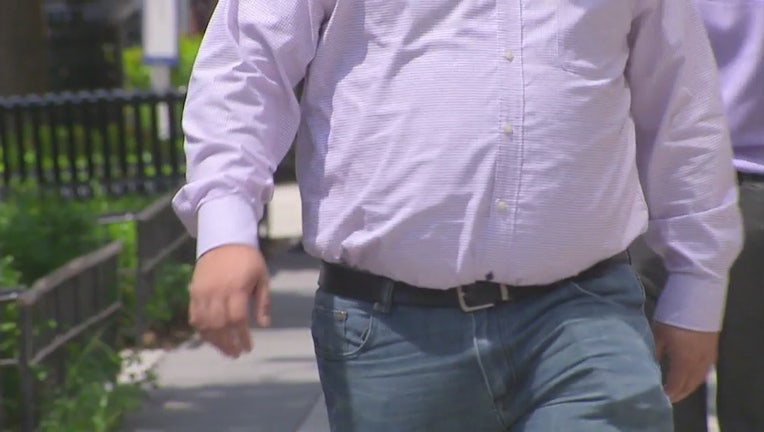Being overweight now potential coronavirus risk factor, CDC says

The Centers for Disease Control and Prevention (CDC) has expanded its coronavirus risk warning to include people who are considered overweight, meaning over 70% of U.S. adults may be at an increased risk for severe illness related to COVID-19.
According to CDC statistics, over 71% of Americans aged 20 and older are considered overweight or obese. Obesity is defined as having a body mass index of between 30 and 40, with severe obesity being diagnosed when BMI is 40 or above. Being overweight, however, is classified as having a BMI greater than 25 but less than 30. The health agency now says that if you fall into that category, it “might increase your risk of severe illness from COVID-19.”
Other risk factors that might increase the risk of severe illness include asthma, cerebrovascular disease, cystic fibrosis, hypertension, immunocompromised state, neurologic conditions, liver disease, pregnancy, pulmonary fibrosis, thalassemia and Type 1 diabetes.
The CDC’s update follows numerous studies that have found that obesity may increase the risk of COVID-19-related death, including one that found the increase to be as much as 50%. The same University of North Carolina, Chapel Hill study found that those with a BMI of over 30 are more likely to be hospitalized or admitted to the ICU due to the virus. According to the research, obesity is over tied to other underlying risk factors for novel coronavirus identified by the CDC such as heart disease, Type 2 diabetes, chronic kidney, liver disease and hypertension.
Further, individuals who have obesity can have metabolic changes that result in inflammation, issues with insulin, and the immune system which can hamper the body’s ability to fight off COVID-19. The researchers suggested preventative action among the obese population that was not unlike the steps listed by the CDC.
“Given the significant threat COVID-19 represents to individuals with obesity, healthy food policies can play a supportive – and especially important role in the mitigation of COVID-19 mortality and morbidity,” Barry Popkin, Ph.D., professor of nutrition at the UNC Gillings School of Global Public Health, said in a news release at the time.
Additionally, the CDC advises taking prescription medicines for overweight, obesity or severe obesity exactly as prescribed, following a health care providers recommendations for nutrition and physical activity while maintaining social distancing, calling health care provider of you have concerns or feel sick, and in the event that you don’t have a health care provider, contacting the nearest community health center or health department.

